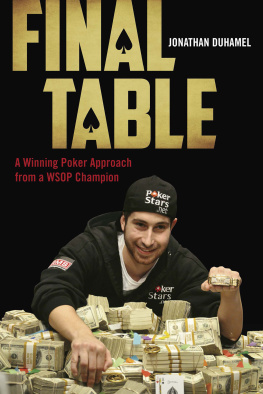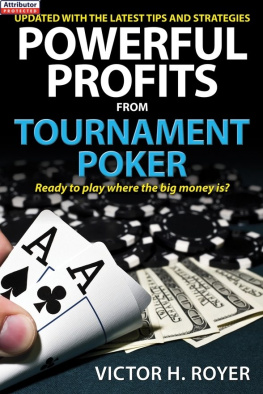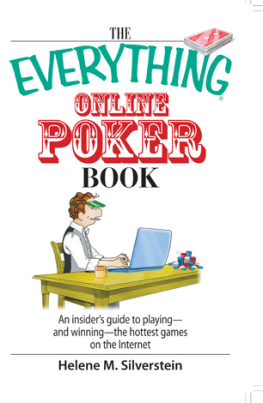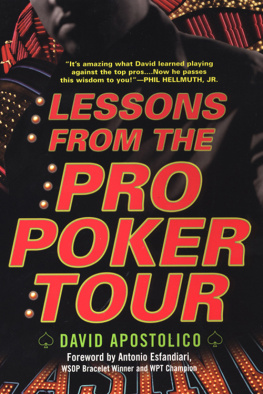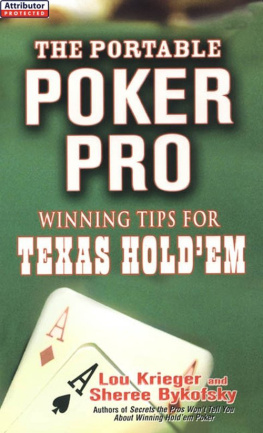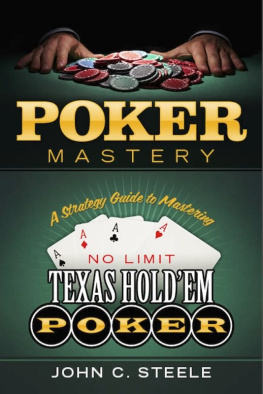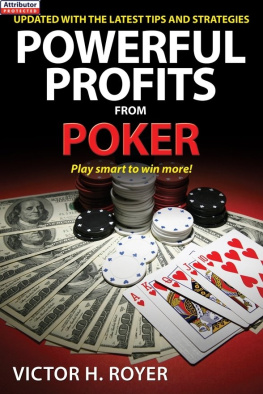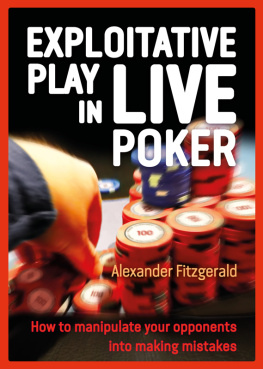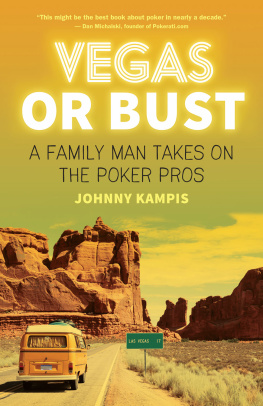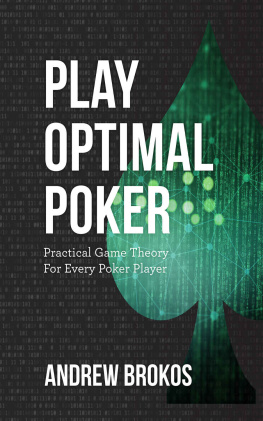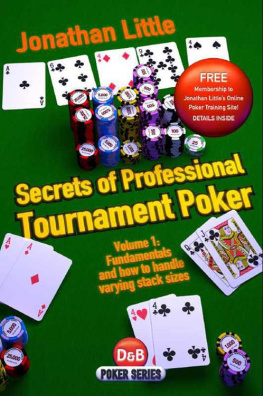I first met Jonathan in January 2011. We were playing poker together at the same table, and thats where I was introduced both to his style of play and to a really good guy. Jonathan is a determined young man. But what impressed me most about him were his lack of pretension and his desire to build up a social network of friends and allies around him with whom to exchange knowledge.
I believe that those are the qualities that make Jonathan an excellent poker player. He has meticulously perfected his style of play and respectfully integrated himself into the community, and he acknowledges his successes with humility.
And he has had great success. As a fellow Quebecker, Im proud of him. You cant help but be proud of someone who, no matter the field, can set himself apart, persevere and inspire others.
Being at the top of the game requires great discipline and a lot of passion. You have to be willing to make sacrifices, be open to continuing to learn, and dream always dream. Thats the way it is in business, in the arts, in sports, and thats also how it is for poker players.
Ever since that first meeting, Ive had the pleasure of following Jonathans professional and personal progress. He easily maintains that winning approach founded on respect, inspiration and sharing. This book is a testament to that fact. His desire to share his experience in order to inspire both pros and amateurs is proof of a great maturity and an understanding of the values that guide great players.
I learned more about Jonathan through this book, and I cant wait to join him again at a poker table, where camaraderie feeds the joy you feel when you live each of lifes moments to the fullest.
Introduction
On November 9, 2010, I became the first Canadian to win the Main Event of the World Series of Poker, the worlds most famous and most lucrative no-limit Texas Holdem tournament, which that year played host to 7,319 players from 92 different countries. I came home with $8,944,310.
That didnt change the world, but...
Most people would think I was lying if I told them that I havent been on cloud nine since the win. Im proud that I beat the best players in the world to take that title, but I still feel like my accomplishments in poker are few. In poker, just like in sports, business, art or politics, the real challenge is consistency. Youre only ever judged by your last performance. So you have to learn how to keep a good head on your shoulders, whether youre winning or losing.
My win in the Main Event of the WSOP brought me a lot of satisfaction, of course, but it also made popular some ideas about me that are contrary to my ethics and values, which are founded on respect and hard work. For example, many people said that Id dropped out of my business program at the Universit de Qubec Montral in order to become a professional poker player. But nothing could be further from the truth.
In the summer of 2008, as I was heading into the third year of my degree, I decided that finance wasnt what I wanted to do with my life. Id given it a lot of thought. I decided to take a year off to travel and think about my next step. In Qubec, people dont always understand that decision, and many liken it to dropping out. But in England and Scandinavia, taking a gap year to travel and get some real-world experience is completely normal, even encouraged. The thought of earning a living playing poker had nothing to do with that decision.
Its true that I was already playing online poker at that point, and making decent money at it. But my first real encounter with the poker world only occurred at the end of 2008. That fall, a friend of mine told me that a high-profile tournament the Main Event of the European Poker Tour was taking place in Prague that December. I decided to register and to take advantage of being in Europe to travel around for a few weeks afterwards. I finished tenth out of 570 players, missing the final table by a hair, and took home a pot of 42,000 (almost US$55,000), which ensured my financial stability for the year.
Then, in 2009, I played in a few tournaments, but I didnt make any real money. As my sabbatical wrapped up that summer, I still hadnt chosen a new career path. But thanks to the Prague tournament, I had enough money to see me through the foreseeable future. So I decided to take another year off.
It was in 2010 that things really changed. I played in several U.S. tournaments, making a profit in three of them and taking home more than $60,000 before I registered for the WSOP Main Event that was set to start in Las Vegas in May. On July 17, the last day of the preliminary round, I was one of the nine remaining players who would go on to make up the final table in four months. That meant I was guaranteed to take home at least US$800,000. When the competition started up again, I would be in the lead with more than a third of the chips, and I had a pretty good chance of winning.
It goes without saying that at that point, there was no way I was going to go back to school only to leave again in November. And the rest, as they say, is history.
Poker is an exciting and intense game in which luck plays a much smaller role than many people think. You have to practice for hours and hours and constantly want to best yourself in order to win on a regular basis. You also need talent and skill. Some of those skills youre born with. Others you can acquire over the years. Its the latter category that Ill talk about in this book. Some of those skills involve math, while others involve a keen sense of observation. Others have to do with how well you know yourself and other people. Ive somewhat arbitrarily pegged the number of skills at 18. Some overlap and intersect, but one things for sure: during a tournament, each skill comes into play and makes the difference between a win and a loss.
This isnt a how-to book, nor is it a collection of tricks and shortcuts for quick and easy improvement. There is no easy money in poker. Players lured by the promise of easy money are quickly disappointed: you wont see those players at the professional level. Like in most fields, its through talent, hard work, determination and a well thought-out strategy that you get the best results.
Ive had the pleasure to rub elbows with and play against some of the worlds best players over the past few years. I learned a lot from them and continue to do so. All of those champions, from Daniel Negreanu to Phil Ivey, Phil Hellmuth and Allen Cunningham, possess the 18 qualities described in this book. You just cant win without them.
Passion
Lots of pros arent passionate about what they do, and it shows. I love poker. I love everything about it. Its the best game in the world. Im always trying to improve my game and to move up. I have a huge advantage over those of my opponents who only play because its their job.
Phil Ivey
Everything starts with passion...
That said, this kind of passion isnt one that I seemed predestined to have. We often assume that children inherit their parents quirks and qualities, even though its seldom the case. But neither poker nor any other betting game ever made it past the doorstep of our house while I was growing up. My father, Luc Duhamel, who has worked as a machinist at Pratt and Whitney for the past 30 years, and my mother, Johanne Grenier, a teller at the Desjardins credit union in Boucherville, taught me from a very young age that money doesnt grow on trees... or on cards.

